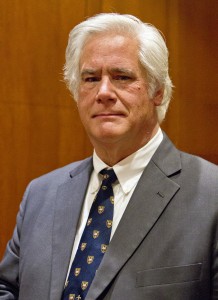It is perhaps not well known that Robert G. Menzies immensely enjoyed the social life of the clubs he was a member of. He had membership in three during his career: the West Brighton, the Savage, and the K.K. They provided a clean relaxing break from his busy life first in the law and then in politics. Sir John Bunting, Menzies’ Cabinet Secretary and Secretary to the Prime Minister’s Department, devoted several pages to Menzies’ ‘clubbability’ in his book R.G. Menzies: A Portrait. Those pages are reproduced below.
Edmund Burke’s Club is organizing a dinner to commemorate the 800th anniversary of Magna Carta (15th June 1215) and the 200th anniversary of the Battle of Waterloo (18th June 1815) at Melbourne’s Savage Club for the 16th of June 2015. As with the very enjoyable dinner on the eve of our Edmund Burke conference, the dinner will take its lead from R.G. Menzies.
MENZIES was a considerable club man. But that straight away needs an explanation, because the clubs he most used were not of the usually understood variety. There are various dictionary definitions of clubs. For what are now understood as the traditional clubs, the Concise Oxford formula seems to go closest: ‘body of persons combined for social purposes, and having premises for resort, meals, temporary residence etc.’ Clubs of this sort, modelled on British precedent, have always existed in Australia. They are social clubs obviously, but they are also clubs that people join for business and professional reasons. These were not really for Menzies. He visited them often enough, and the equivalent clubs elsewhere, and, as a guest, was perfectly at home and happy. But although he was in them, he was not of them, nor of their style. His main choices, in his home city of Melbourne, fell on three quite other clubs: the Savage, the West Brighton and the K.K. These were clubs for the inner Menzies. (I omit, which would be at my peril if he were to know, the Melbourne Scots, but it does not, I think, come into this narrative.) Continue reading
